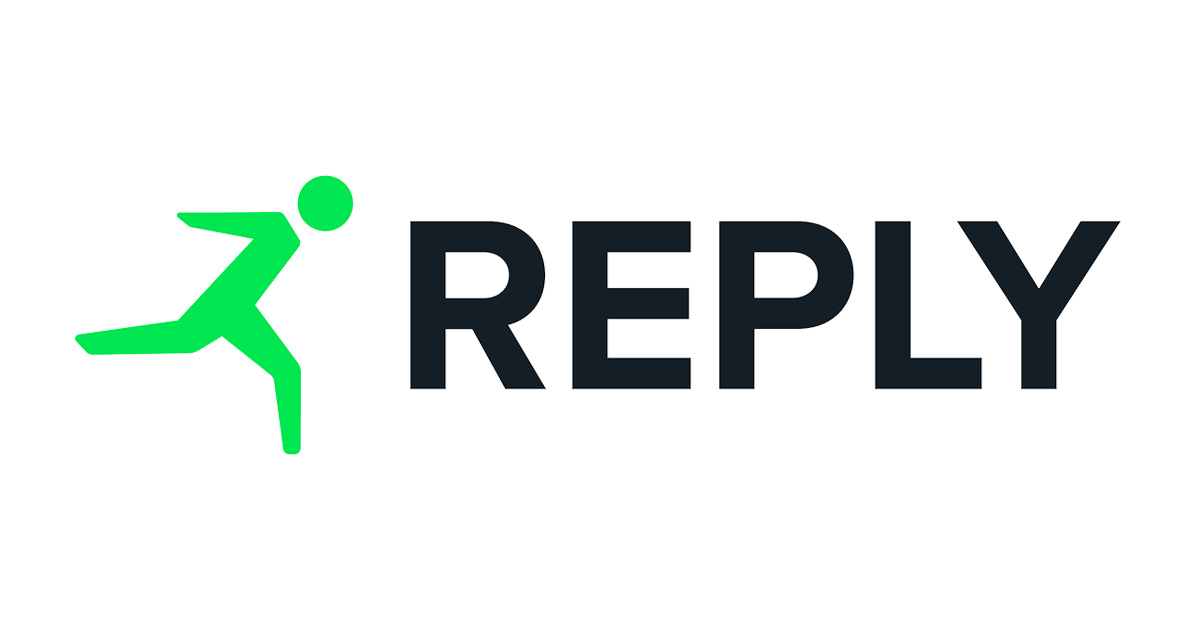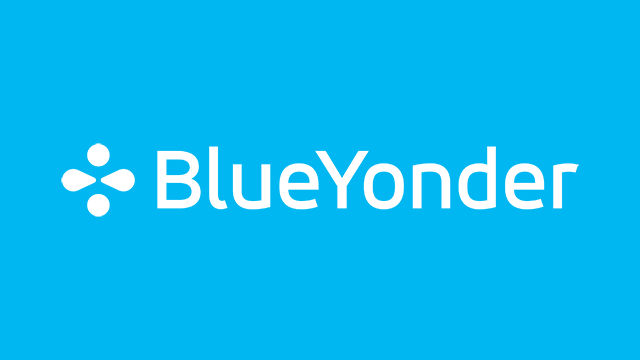Introduction
Warehousing and inventory management are critical components of any supply chain. An effective warehouse management system (WMS) helps companies gain visibility, control and automate processes to maximize throughput, space utilization and worker productivity. However, choosing the right WMS requires understanding your unique needs and evaluating various options based on important criteria. This guide analyzes 15 top WMS solutions covering mainstream as well as niche players to help you make an informed decision.
Methods of Evaluation
The companies were evaluated based on standard criteria like core functionalities, deployment options, pricing models, configurability and support. However, additional weightage was given to modern aspects like ease of integration, mobile capabilities, predictive analytics, AI/ML integration and capabilities supporting emerging trends in warehousing like voice picking, augmented reality etc. Publicly available third party reviews, customer rankings, number of online resources, backlinks, organic traffic and keyword trends were also analyzed to gauge market presence, brand reputation and mindshare.
1. SAP
SAP is a global leader in enterprise application software, offering a comprehensive suite of supply chain management and warehouse management solutions. Their warehouse management system (WMS), part of the SAP Extended Warehouse Management (EWM) product, is a fully integrated solution designed to support complex warehouse operations and supply chain requirements.
Pros: Key advantages of SAP’s WMS include:
– Being part of a leading ERP vendor’s portfolio means tight integration with other core SAP modules
– Highly scalable and configurable to support the needs of large and complex warehouse environments
– Robust capabilities for supply chain event management, optimization of tasks and workflows, and demand-driven replenishment
Cons: A potential disadvantage is the high total cost of ownership due to licensing fees and implementation/maintenance costs typically associated with large-scale ERP solutions.
Pricing: Pricing for SAP’s WMS solution is not publicly disclosed and varies depending on factors like number of users, modules implemented, customizations required etc. However, as part of a major ERP vendor’s warehouse management offering, implementation and ongoing licensing costs can be significant for large enterprises.
Some key stats about SAP’s WMS include:
– Used by over 10,000 customers worldwide across various industries
– Supports warehouses from small to very large facilities handling millions of items
– Integrated with other SAP modules like ERP, TMS, YMS for end-to-end supply chain visibility
2. Infor
Infor is a leading ERP vendor known for providing industry-specific solutions. Their warehouse management system (WMS) is highly integrated with their core ERP platforms like Infor CloudSuite Industrial (SyteLine), Infor CloudSuite Business, Infor M3 and Infor LN. This deep integration allows seamless flow of data between the WMS and ERP, minimizing errors.
Pros: Key advantages of Infor WMS include:
– Leading ERP vendor’s WMS offering is integrated with Infor ERP systems for a seamless experience
– Good support for complex warehouses and distribution requirements involving multiple SKUs, locations, carriers etc.
– Predictive tools for demand planning, automated replenishment and inventory optimization
Cons: One potential disadvantage is that the WMS is primarily aimed at Infor ERP customers. It may not be the best choice for companies using non-Infor ERP systems.
Pricing: Infor does not disclose the pricing of its WMS publicly. However, being from a large enterprise vendor, its pricing is likely to be on the higher side compared to other standalone WMS solutions. Potential customers will need to request a quote customized to their requirements.
Some key stats about Infor WMS include:
– Used by over 5000 customers globally across industries like manufacturing, wholesale distribution, retail, hi-tech and engineering
– Supports more than 150 million outbound shipments and 150 million inbound receipts annually
– Meets complex requirements like rack optimization, slotting, put-to-light and voice-enabled picking.
3. Teradata WMS
Teradata WMS is a cloud-native warehouse management system developed by Teradata, a leading data analytics and database solutions provider. Leveraging over 40 years of experience in data storage and management, Teradata WMS aims to provide enterprises with an intelligent and scalable platform for optimizing warehouse operations.
Pros: Key advantages of Teradata WMS include strong database backend providing robust reporting and analytics, tight integration of cloud and on-premise deployments allowing flexibility, and leveraging of Teradata’s expertise in data handling and artificial intelligence for optimizing warehouse workflows.
Cons: As a relatively new entrant in the WMS market, Teradata WMS may not have the breadth of functionality and pre-built integrations that market leading WMS solutions offer. Implementation and support costs can also be higher than some open-source or smaller vendor alternatives.
Pricing: Teradata WMS pricing is based on monthly subscription starting from $2,000 per month for basic cloud hosted deployment. Additional costs are incurred based on number of users, SKUs managed, volume of transactions and customization/implementation requirements.
Some key stats about Teradata WMS include: ability to manage over 100k SKUs, support for multiple warehouse types from standard to automated, integrated inventory tracking across multiple sites, and automation of over 90% of common warehouse tasks like receiving, put-away, pick & pack etc.
4. Reply
Reply is a leading provider of warehouse management software (WMS). Their software, ReplyWare, is a cloud-native platform that offers comprehensive warehouse, inventory, and order management capabilities. ReplyWare aims to help businesses gain visibility and control over their supply chain operations.
Pros: Some key advantages of ReplyWare include:
– Robust 3PL capabilities like cross-docking, lot/serial tracking, and purchase order management
– Supports diverse workflows through configurable rules engine and forms
– Modern cloud-native platform that ensures high performance, scalability and uptime
Cons: One potential disadvantage is that the platform may have a relatively long implementation timeline compared to some other WMS solutions due to its high level of configurability.
Pricing: ReplyWare pricing is based on monthly or annual subscriptions. Pricing depends on key factors like number of users, transactions per month, and required modules. A sales representative can provide a custom quote based on business needs and requirements.
Some key stats about ReplyWare include:
– Used by over 500 companies globally across various industries like manufacturing, wholesale distribution, and 3PL
– Supports multi-tenant architecture allowing businesses to share the same platform
– Processes over 15 million transactions per day
5. Epicor
Epicor is a global provider of industry-specific enterprise software to promote business growth. Their Warehouse Management System (WMS) is a core component of their industry-leading Epicor Eclipse enterprise resource planning (ERP) solution. The WMS is designed specifically for industrial distributors and wholesalers to help manage inventory, orders, shipping and receiving.
Pros: Key advantages of Epicor’s WMS include:
– Specialized tools for tasks like bin assignment, put-away, replenishment, cycle counting and labor tracking
– Slotting optimization to maximize warehouse space utilization
– Real-time inventory visibility across all warehouse locations
Cons: A potential disadvantage is that Epicor’s WMS is tightly integrated with their Eclipse ERP platform, so it may not be as flexible to use as a standalone solution.
Pricing: Pricing for Epicor’s WMS is not publicly listed and would require a consultation with a sales representative. However, as it is part of their broader Eclipse ERP offering, the WMS costs are typically included as part of an overall ERP implementation and licensing agreement.
Some key stats about Epicor’s WMS include:
– Used by over 20,000 customers globally across various industries
– Integrated with Epicor Eclipse ERP for complete warehouse and inventory visibility
– Over 25 years of experience developing WMS solutions
6. Unit4 M3 WMS
Unit4 M3 WMS is a modern warehouse management software and part of Unit4’s broader enterprise resource planning (ERP) ecosystem. As an integrated component of the Unit4 ERP suite, Unit4 M3 WMS offers powerful warehouse and inventory management capabilities combined with access to Financials, Procurement, Human Capital Management and other key business applications.
Pros: Key advantages of Unit4 M3 WMS include:
– Powerful WMS capabilities as part of a broader ERP ecosystem
– Strong configurability to support complex warehouse workflows
– Proven track record of success across manufacturing, wholesale distribution, retail and other industries
Cons: A potential disadvantage is that the full capabilities of Unit4 M3 WMS may only be realized when used as an integrated part of the broader Unit4 ERP suite. As a standalone WMS solution it has fewer out-of-the-box integrated features.
Pricing: Pricing for Unit4 M3 WMS varies depending on deployment size, modules, services and support selected. It is typically sold as a recurring subscription-based SaaS or on-premises licensed model with professional services and support available separately.
Some key stats about Unit4 M3 WMS include:
– Used by over 6,000 customers globally across various industries
– Supports complex warehouse workflows and configurations
– Integrated with other Unit4 modules for end-to-end supply chain visibility
7. Descartes
Descartes is a leading provider of technology solutions for logistics and supply chain management. Founded in 1991, Descartes provides cloud-based and on-premises technologies and services for companies that ship, receive, track and trade goods and inventory worldwide.
Pros: Key advantages of Descartes’ warehouse management software include: Focus on global transportation and distribution environments, Powerful mobile solutions and yard management tools, Highly customizable to support even the most complex supply chain environments.
Cons: One potential disadvantage is the software requires significant configuration and customization to implement which increases implementation costs and timelines compared to some simpler solutions.
Pricing: Pricing for Descartes’ warehouse management system is not publicly listed and depends on deployment size, modules, customizations and services required. Contact Descartes’ sales team for an accurate quote tailored to your specific business needs.
Some key stats about Descartes’ warehouse management software include: Used by over 20,000 customers worldwide, Processed over 1 billion transactions per day, Tracks over 10 million assets globally daily.
8. Manhattan Associates
Manhattan Associates is a supply chain solutions provider best known for its warehouse management system (WMS) called Manhattan SCALE. Manhattan SCALE is used by many large enterprises across various industries like retail, third-party logistics, e-commerce, grocery and more to manage their warehouse operations. Some key capabilities include warehouse execution, optimization, labor management, inventory allocation and more.
Pros: Main advantages of Manhattan SCALE WMS include:
– Industry-leading solution trusted by large enterprises globally
– Powerful and configurable features for all warehouse operations like receiving, putaway, picking, packing etc.
– Strong integration capabilities that help automate workflows across the supply chain
– Real-time visibility into inventory, orders and labor across distributed networks
Cons: One potential downside could be the high implementation and customization costs since it is an enterprise-grade solution meant for large warehouses and distribution networks.
Pricing: Manhattan SCALE WMS pricing is typically sold on a perpetual licensing model based on the number of users, types of modules, implementation services required and other customization. Manhattan also offers flexible SaaS subscription pricing for mid-market customers. Overall Manhattan is among the most expensive WMS solutions due to its powerful enterprise-grade feature set.
Some key stats about Manhattan SCALE WMS:
– Over 1000 customers worldwide including many Fortune 500 companies
– Supports over 1000 warehouses globally
– Integrates with all major ERP, TMS and supply chain applications
– Helps customers achieve over 10% increase in productivity and accuracy on average
9. Blue Yonder
Blue Yonder is a leading provider of warehouse management software. Founded in 2008 and headquartered in Phoenix, Arizona, Blue Yonder provides end-to-end supply chain execution solutions for many of the world’s largest retailers, manufacturers and logistics providers. Their WMS solution is a cloud-native platform that leverages artificial intelligence and machine learning across fulfillment operations.
Pros: Key advantages of Blue Yonder’s WMS include:
– Artificial intelligence integrated throughout the WMS to optimize operations
– Specialized capabilities such as voice picking, augmented reality and robotics integrations
– Scalable architecture designed for enterprise level supply chains with the highest volume and complexity
– Open API architecture allows for easy customization and third-party partner integrations
Cons: The main potential disadvantage is the large implementation required for large enterprise deployments which can be both time-consuming and expensive.
Pricing: Blue Yonder offers flexible pricing models including annual or multi-year subscription licenses based on your warehouse size, throughput and user requirements. Add-on services like implementation, customization and support are also available.
Some key stats about Blue Yonder’s WMS include:
– Over 1,300 customer deployments globally spanning all major industries
– Manages over $1 trillion in supply chain spend annually
– Integrates with all major ERP, TMS and transportation systems
– Supports more than 60 languages and local compliance requirements
10. TrueCommerce
TrueCommerce is a global provider of supply chain management solutions including warehouse management software (WMS). Founded in 1970 and headquartered in Cary, North Carolina, TrueCommerce is focused on streamlining supply chain management for companies of all sizes across various industries.
Pros: Some key advantages of TrueCommerce’s warehouse management software include:
– EDI-centric platform designed for strong integration with trading partners
– Scalable cloud architecture that supports global supply chains
– End-to-end visibility across transportation, warehousing, and fulfillment functions
Cons: One potential disadvantage is that TrueCommerce is focused primarily on mid-market to enterprise customers, so may not be the best fit for very small businesses with minimal supply chain needs.
Pricing: TrueCommerce offers flexible pricing based on implementation services, user licenses, monthly transaction volumes, and add-on modules. Contact their sales team for a custom quote.
Some key stats about TrueCommerce include:
– Serves over 9,000 customers globally across multiple industries
– Processes over $600 billion in commerce transactions annually
– Supports 50+ EDI document types for seamless integration with trading partners
11. JDA
JDA is a leading provider of supply chain management software. Founded in 1981, JDA offers warehouse management, transportation management, supply chain planning and retail solutions. Their platform aims to help companies manage increasingly complex supply chains and enable digital transformation.
Pros: Some key advantages of JDA warehouse management software include:
– Predictive analytics and digital tools that help optimize warehouse operations.
– Powerful labor planning features to forecast required staff and minimize over/understaffing.
– Comprehensive yard management capabilities for truck scheduling, dispatching and tracking.
– Scalable architecture that can support the needs of very large distribution centers with millions of SKUs and high throughput.
Cons: A potential downside is that JDA solutions tend to be enterprise-grade and complex which requires significant implementation efforts. They may not be the best fit for smaller businesses or those just starting their warehouse digitization journey.
Pricing: JDA pricing is typically customized based on specific implementation requirements, industry, number of users etc. But in general, their solutions fall in the higher end of the pricing spectrum aimed at large enterprise customers. Implementation services are also priced separately on top of the software licensing costs.
Some key stats about JDA include:
– Over 4000 customers globally across various industries such as retail, manufacturing and third party logistics.
– Presence in over 100 countries with offices worldwide.
– Over 30 years of experience in supply chain solutions.
– Supports projects of all sizes from small to very large global rollouts.
12. Skubana
Skubana is a cloud-based warehouse management system (WMS) that helps companies gain visibility, control, and efficiency across their fulfillment operations. Founded in 2013, Skubana provides omnichannel fulfillment software tailored for growing 3PLs, manufacturers, and ecommerce businesses.
Pros: Some key advantages of Skubana include: – Modern cloud WMS optimized for SMBs – Focus on usability and fast ROI – Attractive initial pricing models
Cons: One potential disadvantage is that the software may not be as fully-featured as some more expensive enterprise solutions, so it could lack some complex functionality needed by very large organizations.
Pricing: Skubana offers flexible pricing based on warehouse size and volume. Basic plans start around $99/month for a single user and small warehouse. Larger plans with more users and features are available for mid-market and enterprise organizations.
Some key stats about Skubana include: – Used by over 500 companies globally to manage millions of SKUs – Integrates with over 50+ ecommerce platforms, marketplaces, carriers, and more – Real-time inventory visibility across all warehouse locations
13. Syspro
Syspro is an enterprise resource planning (ERP) software that provides warehouse management capabilities through its robust WMS module. In business for over 40 years, Syspro offers a full-featured ERP solution for mid-market manufacturing and distribution companies. The WMS module provides core warehouse management functionalities to help optimize inventory, labor and throughput.
Pros: Key advantages of Syspro’s WMS include its ability to: Streamline and automate receiving, put-away, inventory management and shipping processes. Provide real-time visibility into inventory levels and locations. Support multipiece orders and lot/serial traceability. Offer performance reporting and metrics on tasks, workers and inventory turnover.
Cons: A potential disadvantage is that Syspro’s WMS module requires the full Syspro ERP platform which increases initial investment compared to best-of-breed or standalone WMS options. However, the integrated ERP/WMS approach offers better functionality and increased ROI over the long-term for mid-market manufacturers.
Pricing: Syspro offers flexible licensing models for its ERP and WMS solutions including perpetual, subscription and usage-based pricing. For a mid-sized manufacturer or distributor with up to 500 users, expected first year investment is between $150,000 to $300,000 depending on chosen modules.
Some key stats about Syspro’s WMS module include: Supports over 12,000 work orders processed per day, more than 100,000 product receipt and shipping transactions per month, and warehouses ranging from 30,000 to 500,000 square feet. The WMS supports barcode scanning, put-away and picking strategies, physical count integration and cross-docking capabilities.
14. One Network Enterprises
One Network Enterprises provides an AI-powered supply chain visibility and execution platform that connects trading partners across the global supply chain. Their digital supply chain network platform enables end-to-end supply chain orchestration, logistics management, transportation optimization and analytics.
Pros: Some key advantages of the One Network Enterprises platform include:
– Supply chain orchestration platform connecting trading partners across the global supply chain network
– Integrated logistics management, transportation optimization and analytics capabilities
– Ability to optimize operations of complex global distributed supply chain networks through real-time visibility and autonomous planning
Cons: A potential disadvantage is the platform requires trading partners and suppliers to also connect to the One Network Enterprises digital supply chain network in order to realize the full benefits of end-to-end visibility and autonomous planning.
Pricing: Pricing for One Network Enterprises depends on the number of users, modules, integrations and services required. Contact their sales team at https://onenetwork.com/?partner=saasfreetrials.com for a customized quote and free trial.
Some key stats about One Network Enterprises include:
– Over 1,200 customers worldwide across various industries
– Network of over 50,000 trading partners connected digitally
– Supports operations in over 190 countries
15. Lokad
Lokad is a predictive optimization software for supply chain management. Their flagship product is a warehouse execution system (WES) focused on optimizing throughput within warehouses and distribution centers. The software leverages integrated analytics and machine learning to provide predictive maintenance of equipment and optimizations of workflow.
Pros: Key advantages of Lokad’s software include its throughput optimization capabilities, integrated analytics platform for predictive maintenance, and customizable user interface that allows the software to be used on any device.
Cons: A potential disadvantage is the upfront costs and implementation timeline required to deploy the warehouse execution system across an entire facility.
Pricing: Lokad offers several pricing plans for their supply chain optimization software. Basic plans start at $1500/month for smaller warehouses under 50K sqft. Premium plans for larger facilities over 100K sqft start at $4000/month and include additional features and support.
Some key stats about Lokad’s WES software include: ability to increase throughput by 15-25% on average, reduce inventory levels by 10-20%, and improve order fulfillment accuracy by more than 98%.
Conclusion
While the top vendors like Manhattan Associates, Blue Yonder and SAP dominate the enterprise WMS space, there are also strong solutions from Infor, Teradata and Epicor. For SMBs, promising niche players like Lokad, Skubana and Descartes offer competitive options. Whether you need basic tracking or highly advanced capabilities, there is a WMS tailored to your specific needs. Evaluating solutions based on organizational priorities and do thorough vendor evaluations can help identify the best fit.















